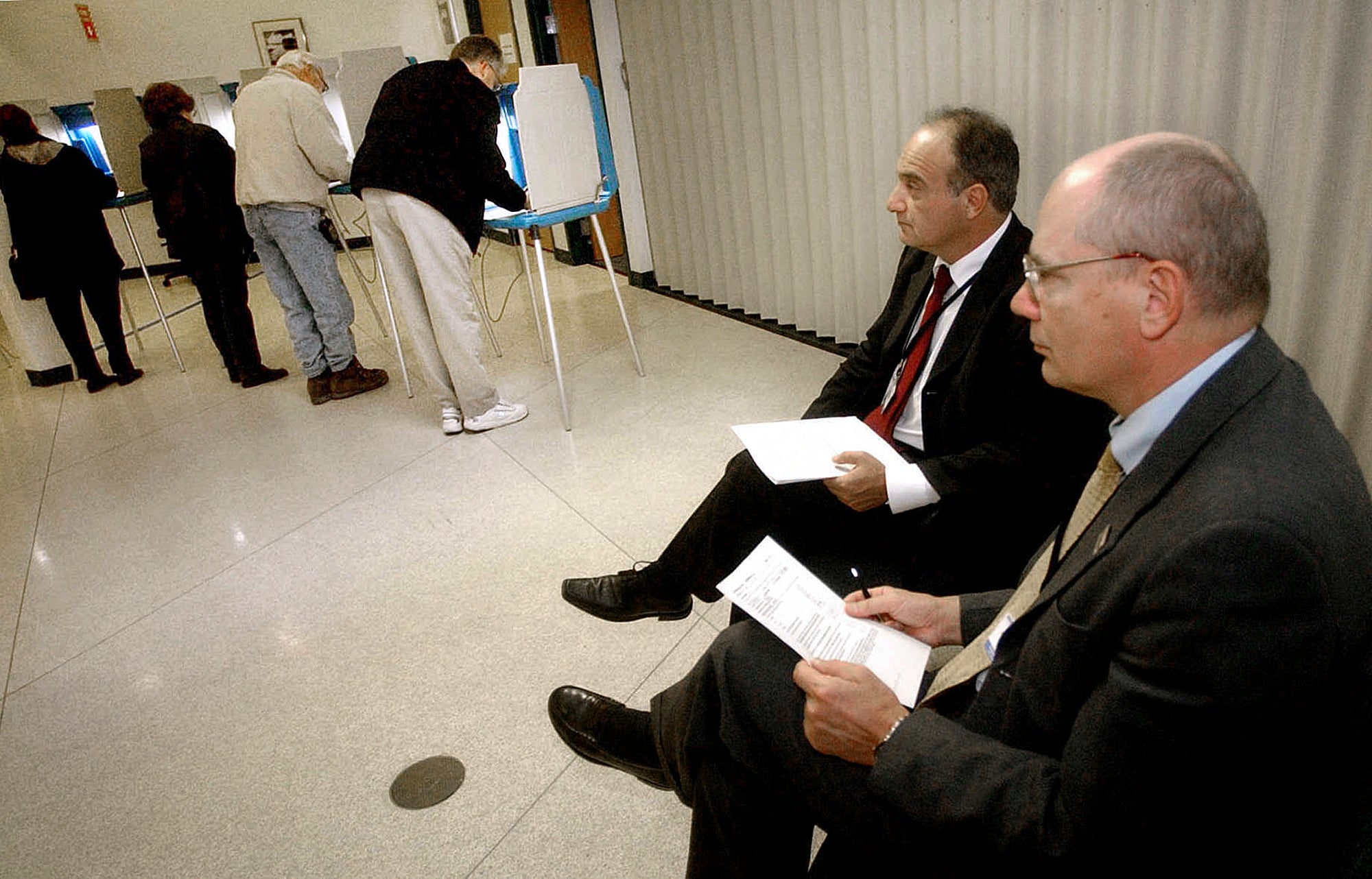AP Exclusive: Pandemic shrinking Europe's monitor of US vote
The coronavirus pandemic has led Europe’s largest security organization to drastically scale back plans to send as many as 500 observers to the U.S. to monitor the Nov. 3 presidential election

Your support helps us to tell the story
From reproductive rights to climate change to Big Tech, The Independent is on the ground when the story is developing. Whether it's investigating the financials of Elon Musk's pro-Trump PAC or producing our latest documentary, 'The A Word', which shines a light on the American women fighting for reproductive rights, we know how important it is to parse out the facts from the messaging.
At such a critical moment in US history, we need reporters on the ground. Your donation allows us to keep sending journalists to speak to both sides of the story.
The Independent is trusted by Americans across the entire political spectrum. And unlike many other quality news outlets, we choose not to lock Americans out of our reporting and analysis with paywalls. We believe quality journalism should be available to everyone, paid for by those who can afford it.
Your support makes all the difference.Europe’s largest security organization said Friday that it has drastically scaled back plans to send as many as 500 observers to the U.S. to monitor the Nov. 3 presidential election and now will deploy just 30 because of the coronavirus pandemic.
The Organization for Security and Cooperation in Europe — better known for monitoring elections in countries such as Belarus or Kyrgyzstan than the U.S. — has spent months trying to figure out how to safely keep tabs on an election it worries will be “the most challenging in recent decades” as Americans pick a president in the throes of a global health crisis.
The OSCE's mission originally was to have involved 100 long-term and 400 short-term observers to the U.S. starting this month, but health concerns and restrictions on travel prompted the Vienna-based organization to pare that back to 30 observers, spokesperson Katya Andrusz told The Associated Press.
“While we had planned to send a full-fledged election observation mission, the safety fears as well as continuing travel restrictions caused by the COVID-19 pandemic are creating challenges,” Andrusz said in an email. The 30 are expected to head to the U.S. early next month and will stay through Nov. 3, she said.
Last March, the U.S. mission to the OSCE had requested observers, as all countries belonging to the group, including Russia, are obligated to do. The organization’s Office for Democratic Institutions and Human Rights has deployed monitors for U.S. voting since the 2002 midterm elections — the first since the 2000 presidential election recount that left the outcome unclear for weeks, raising questions among America’s allies about the integrity of its electoral politics.
Typically, the organization sends a small delegation months before an election to do a “needs assessment,” but that was conducted remotely in early June “due to the global health emergency and restrictions on cross-border travel,” officials said.
The European security group has publicly criticized the Electoral College system in the U.S., saying it “does not provide for equality of vote" like a popular vote would do.
Even if observers were granted access, many U.S. states don't allow them, and others leave it to the discretion of local elections officials. Only California, Missouri, New Mexico and Washington, D.C., expressly allow international monitors.
Calls have been mounting for extra scrutiny of November’s election, which will rely more than usual on mail-in ballots — and not just with domestic observers, as the Carter Center intends to do.
“The United States touts itself as the democratic model that nations around the world should emulate. But if America really wants to be the exemplar of democracy, then it should prove its elections are, in fact, free and fair, and let the world watch,” The Boston Globe said in an editorial last month.
In a July report expressing concern about the U.S. vote, the OSCE said the 400 short-term observers would include some who would be focused solely on media coverage in the days and hours leading up to the vote.
“In an atmosphere of increased polarization, and accusations from all political sides on potential voter fraud and mistrust in the election process and results, the presence of external observers to assess the process will be highly valuable, adding an important layer of transparency," it said.
Timothy Rich, a professor of political science at Western Kentucky University, contends that “ensuring fair elections is an essential component of American democracy.”
“International monitors have shown they can provide an effective means to reduce public concerns about fraud and voter suppression,” Rich wrote in a recent commentary for The Conversation.